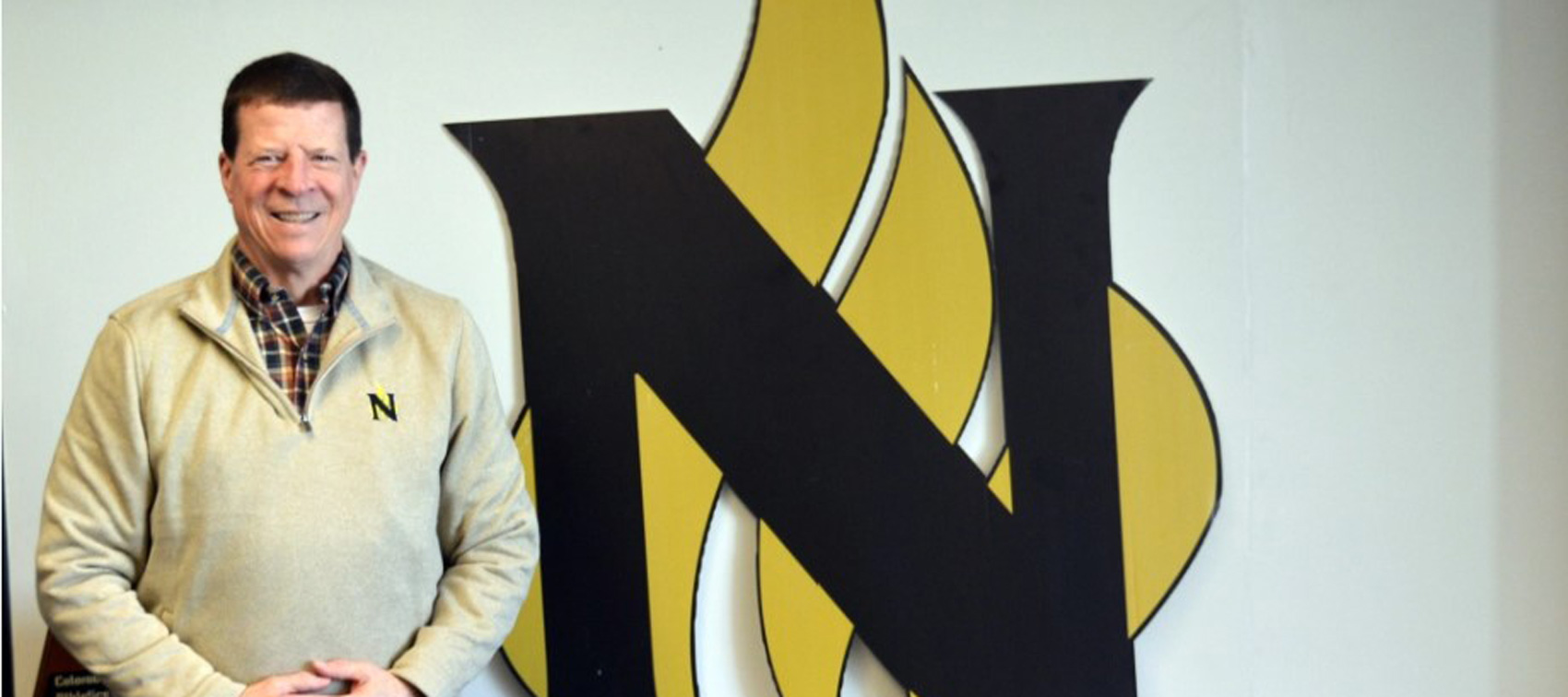Most people would assume that guiding Colorado’s premier residential community college through recovery from the worst viral pandemic in a century would be fraught with challenges.
Mike White sees opportunities.
“I think we have an opportunity to think about our under-served population here, and that ranges from people still seeking their GED – how do we shepherd them to get the GED – and then move them into an education that gives them a lifetime career,” White said.
White, a retired U.S. Navy rear admiral and former Navy fighter pilot, took the helm of Northeastern Junior College earlier this year, and while it may seem odd to appoint a person fresh from a military career to lead a community college, White has more experience running educational institutions that your average sailor.
Prior to being named president of NJC, White was the dean of the College of Maritime Operational Warfare at the U.S. Naval War College. While there he also ran the Combined Force Maritime Component Commander Course and, prior to that, was commander of the Naval Education and Training Command. Or, as the Pensacola, Fla., News-Journal called him in 2014, “the Navy’s main mentor.” White also has been an air operations instructor, strike fighter pilot instructor and an instructor of air wing tactics.
The educational stints were interspersed among a variety of combat operations assignments, most recently as commander of Carrier Strike Group 11, which he commanded from the super-carrier USS Nimitz (CVN 68.) While serving in combat-ready assignments he logged more than 3,800 hours of cockpit time and had more than 1,000 carrier landings.
Cue Kenny Loggins.
It would be nice to say White touched down in Sterling in typical aviator fashion, with throttle wide open and tail hook snagged on the third wire, but the truth is he drove here as any confident, professional leader of people would. And what he found here, he said, warmed his heart.
Having gained a reputation as a commander who cared deeply about his sailors, White was gratified to find a college with an administration that cares deeply about its staff and students.
“That was such a heart-warming, eye-opening revelation when I got here, that it wasn’t just a factory to push students through, it was really about education,” he said. “The relationship with the community, I assumed would be strong, but the support that I see from the Foundation, from attendance at our events, our sports, just makes (me) appreciate, and makes the students appreciate that they’re at a place where people want them to succeed.”
White’s first challenge will be to try to return enrollment at least to pre-COVID levels. Enrollment at NJC has dropped roughly 20 percent over the past five years, and was hit even harder by the COVID-19 pandemic. It’s an experience shared by all U.S. higher education except, possibly, the elite centers of research and the Ivy League.
“Declining enrollment is a fact of life for all colleges, community colleges in general, so the group here is looking for somebody to build a student (enrollment) that is sustainable, far into the future.”
White will look to NJC’s strengths to do that. He ticked off the fields in which the college has excelled for decades; agriculture, nursing, early child development, wind energy technology, auto and diesel mechanics, cosmetology and business, to name a few. The college’s solid arts and sciences program makes it especially attractive to urban students who want a traditional college experience without the high costs and without getting lost in the mob.
“There are students in metro areas who want the full college experience, that is, a campus with dormitories, activities, athletics, those things you don’t typically find at a metro community college,” he said.
White also is relying on a program from the University of Colorado at Denver called The Partnership for Rural Educator Preparation, or T-PREP for short. According to UCD’s website, the program partners the university with Otero, Trinidad and NJC to make undergraduate programs available to rural students without having to attend class on a CU campus. Similarly, the program offers master’s degrees that are entirely online and available to teachers in rural school districts, and an alternative rural licensure program to prepare rural students for careers in teaching.
Then there is the “welcome to Colorado” gift White received from the Legislature’s Capital Development Committee in February when it recommended NJC’s applied technology campus expansion and remodel as one of the top higher education projects on the list for FY 2022-23.
The project will expand and renovate the existing buildings on the applied technology campus to allow for the expansion of the automotive technology, diesel technology and wind technology programs; move the precision agriculture and welding technology programs; and allow for the addition of new programs such as skilled trades and solar technology. It will connect a new 37,500 gross square-foot pre-engineered metal building to the existing Lebsach-Schmidt Building and renovate 45,470 gross square feet of existing building space and make improvements to the plumbing, HVAC, electrical and fire protection systems.
Opportunities, then, abound for Mike White and NJC, and the receding pandemic already has allowed enrollment to rise some. White said the 2021-2022 freshman class is larger than the sophomore class, and he expects that trend to continue.
“We’ll probably see a few percentage points increase, but I don’t think it will return to the level we had five years ago,” he said. “We’re at about 2,000 students now. I’d like to see us stabilize at between 2,200 and 2,500. If we can achieve that, I believe we can make it sustainable.”


